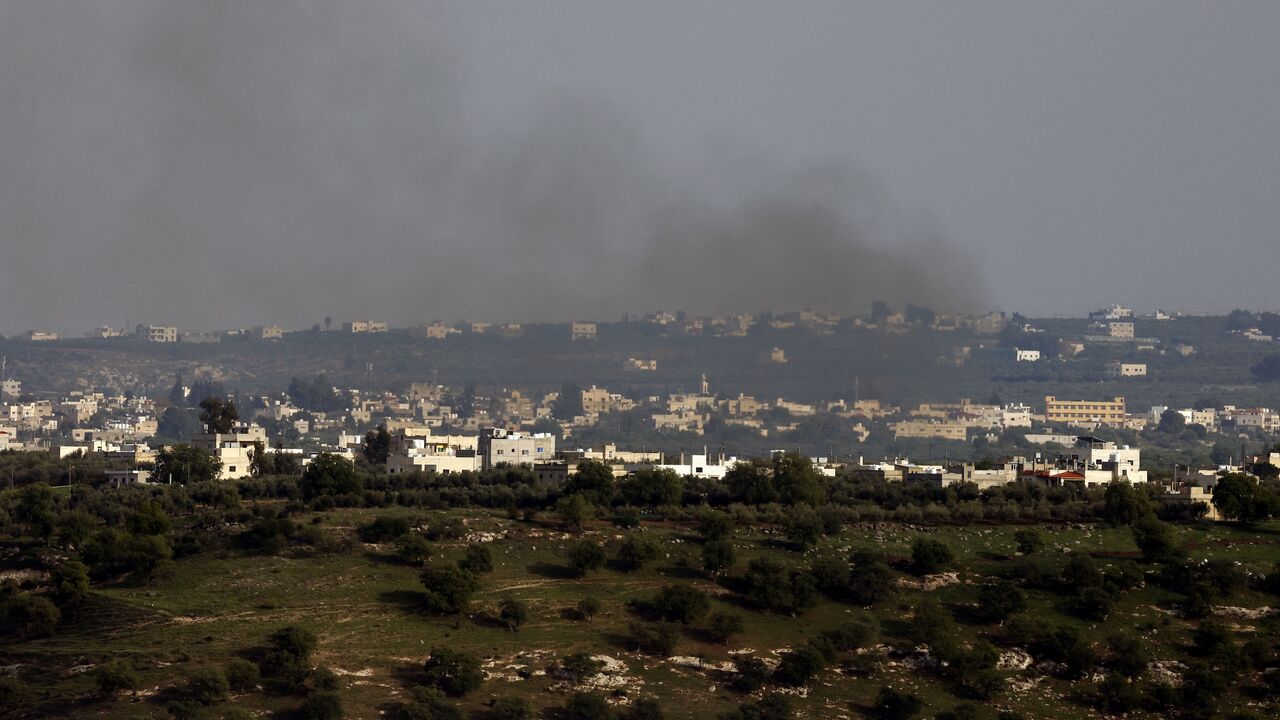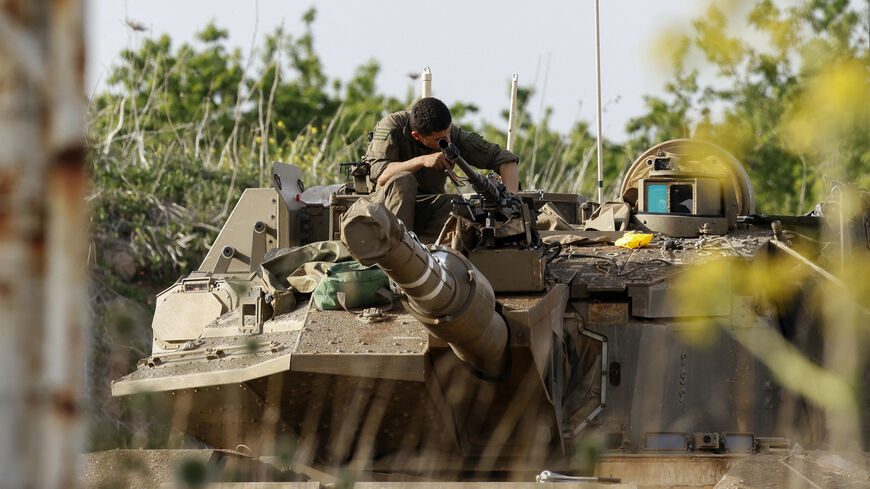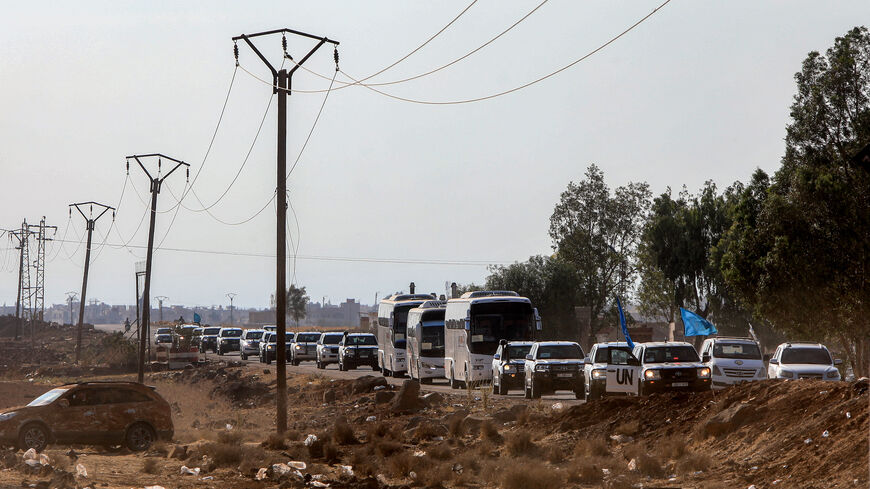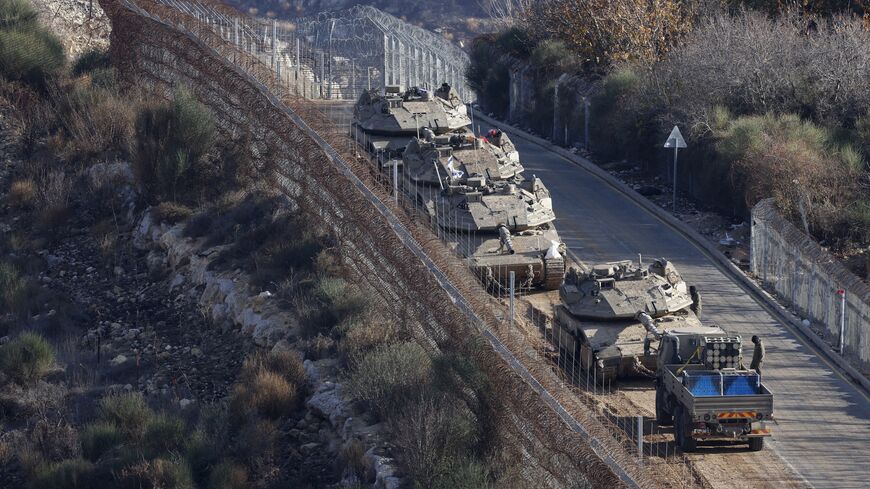Israel carries out airstrikes in Damascus, Homs, Hama as Syria tensions flare
Israel is upping its military action against Syria despite protests from the new government in Damascus.

The Israeli military said it struck the strategic T-4 military airport in Syria on Wednesday evening, while Syria reported strikes in other parts of the country as hostilities intensify.
The official SANA news agency reported that an Israeli airstrike hit near a scientific research building in Barzeh, a suburb of Damascus. The agency reported another Israeli airstrike on the outskirts of Hama in western Syria.
The UK-based Syrian Observatory for Human Rights reported an explosion near the scientific research building, saying the blast was “likely” caused by an Israeli strike.
Al Arabiya reported another Israeli strike near the T-4 military airport in Homs, located between Hama and Damascus.
مصادر العربية: غارة إسرائيلية على محيط مطار T4 العسكري في ريف حمص #قناة_العربية pic.twitter.com/DEm2dv2fHu
— العربية (@AlArabiya) April 2, 2025
Syrian authorities did not immediately comment on the airport strike.
A total of 20 people have been killed in Israeli strikes on Syria this year, including five members of the government's security forces and 13 civilians, according to the observatory.
Why it matters: Israel has escalated its strikes and incursions in Syria since the Islamist former rebel group Hayat Tahrir al-Sham (HTS) toppled President Bashar al-Assad in December. On Thursday, SANA reported that Israeli jets struck near the port and city of Lattakia. The Syrian Observatory for Human Rights said that Israel targeted ammunition warehouses in the area.
On March 25, Israeli forces clashed with Syrians in the Daraa province. Israel said they struck T-4 as well as the Tadmur base near Palmyra the same day.
The London-based news outlet Middle East Eye reported on Tuesday that Turkey is preparing to take control of the T-4 base.
Tensions between Israel and Turkey have been on the rise in recent weeks over the situation in Syria, as Israel reportedly fears the growing Turkish presence in the country. Turkey backed key rebel groups that helped HTS overthrow Assad last December and has moved to establish close ties with Damascus.
After Israel's foreign minister, Gideon Sa'ar, on Thursday accused Turkey of playing a "negative role" in Syria, the Turkish Foreign Ministry condemned “the provocative statements by Israeli ministers regarding our country,” adding that they “reflect not only their state of mind but also the aggressive and expansionist policies of Israel’s fundamentalist and racist government.”
The new Syrian government has repeatedly condemned Israel’s actions. The Foreign Ministry said in a statement last week that the attacks “will not deter Syrians from defending their rights and their land.”
Israel has expressed concern about Assad-era weapons falling into the hands of the new government, pointing to HTS’ past as an al-Qaeda affiliate. In February, Foreign Minister Gideon Sa’ar called HTS “a jihadist Islamist terror group.” HTS split from al-Qaeda in 2016.
Syrian President Ahmed al-Sharaa has sought to convey that Syria is not a threat to Israel. He told Reuters last month, “We have announced from the first moments that Syria will not pose a threat to any state in the region or the world.”
In addition to the strikes, Israel moved its forces into the buffer zone between the Israeli-annexed Golan Heights and southern Syria in December, saying Damascus was no longer abiding by the 1974 border agreement after the collapse of Assad’s army. Israel has seized control of a number of areas in the vicinity of the Golan since then.




